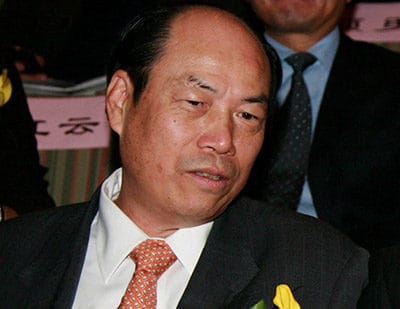
Country Garden boss Yang Guoqiang
Chinese real estate developer Country Garden Holdings sold a $900 million five-year bond on Thursday as the Guangzhou-based firm continues to restructure its financing in the face of China’s property slowdown.
The top-ten China developer’s latest bond issue was priced at a yield of 7.5 percent, with the proceeds intended to refinance $900 million in earlier notes that yielded 11.125 percent and are callable next month, according to an account in FinanceAsia.
The company, which is controlled by Chinese billionaire Yang Huiyan has been restructuring its finances and its busines strategy as China’s real estate market has slumped, and as other Guangdong-based developers such as Kaisa have run into financial difficulty.
Confidence Returning to Chinese High Yield Market
The successful bond issue by Hong Kong-listed Country Garden was the first foray into the high yield debt market by a Chinese company since the spring festival holiday and ended up pricing at a yield 37.5 basis points tighter than initial guidance, showing better than expected demand for the bond.
Following so soon after the near-collapse of Kaisa Group, the bond issue was seen as a vote of confidence by investors after Chinese developer debt was effectively shut out of the international bond markets during January.
JPMorgan, Goldman Sachs, HSBC, Deutsche Bank, and CLSA handled the debt offering.
Country Garden Restructures
Country Garden’s bond issue comes only six months after the developer raised HK$3.2 billion ($413 million) in a rights issue last year, and is part of a plan by new CFO Wu Jianbin to lower the company’s financing costs and make it more sustainable during the current environment.
At the time of the rights offering in late August last year, Country Garden said that it would cut its funding cost by half in the next two years as the real estate market has slowed down and the company’s stock price has slid by more than 26 percent in the last 12 months.
As part of the company’s new strategy, Country Garden has also scaled back its overseas expansion plans, from more than 33 percent of the developer’s total investment last year to just ten percent now.